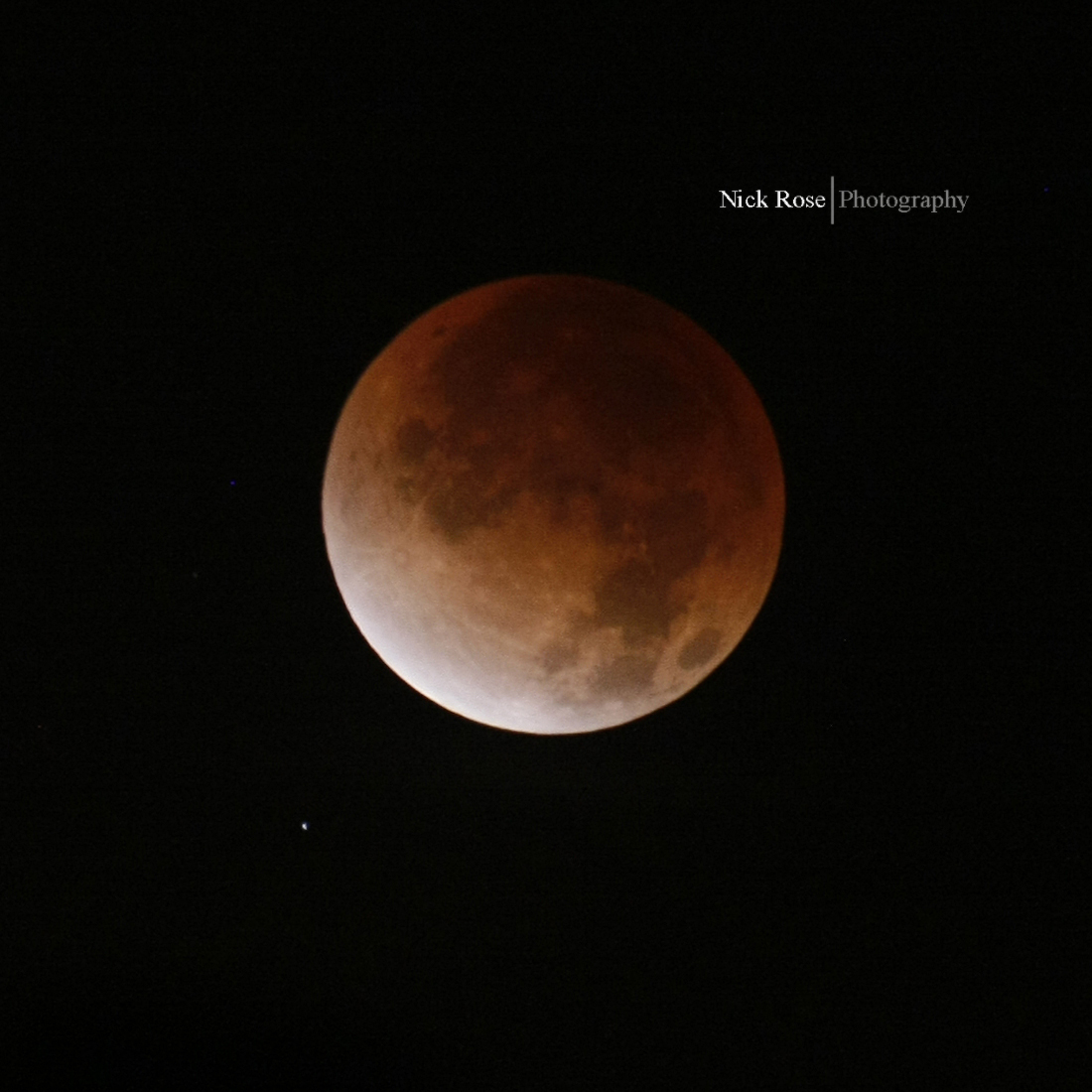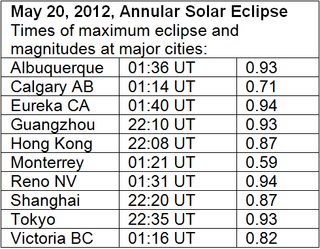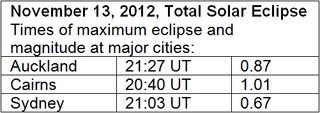2012 Skywatching Guide: Solar and Lunar Eclipses of the Year

Skywatchers around the world can look forward to an exciting lineup of lunar and solar eclipses this year.
There will be a partial lunar eclipse, a penumbral lunar eclipse, an annular solar eclipse, and a total solar eclipse in 2012.
May 20 Annular Solar Eclipse
An annular solar eclipse occurs when the moon is far enough away from the Earth that it is too small to completely cover the Sun, so we observe the sun as a ring or annulus surrounding the moon. This eclipse will be visible at sunrise on May 21 in southern China, at midday across the north Pacific Ocean, and at sunset on May 20 over much of the western U.S.A.

June 4 Partial Lunar Eclipse
The moon will pass through the northern portion of the Earth's shadow. Greatest eclipse will occur at 11:03:13 UT, when 37% of the moon's surface will be in the umbral shadow of Earth. This partial eclipse is visible all across the Pacific Ocean, and in countries on the Pacific rim.
November 13 Total Solar Eclipse
Get the Space.com Newsletter
Breaking space news, the latest updates on rocket launches, skywatching events and more!
This eclipse will begin at sunrise in northern Australia and then will sweep across the south Pacific Ocean artfully avoiding any land, ending as the sun sets off the coast of Chile.

November 28 Penumbral Lunar Eclipse
The moon will slip through the faint outer penumbral shadow of the Earth, with only a faint shading visible to the unaided eye. Observers in eastern Asia and Australia will get the best views, with maximum eclipse occurring at 14:33 UT.
Source: RASC Observer's Handbook 2012
Join our Space Forums to keep talking space on the latest missions, night sky and more! And if you have a news tip, correction or comment, let us know at: community@space.com.

Geoff Gaherty was Space.com's Night Sky columnist and in partnership with Starry Night software and a dedicated amateur astronomer who sought to share the wonders of the night sky with the world. Based in Canada, Geoff studied mathematics and physics at McGill University and earned a Ph.D. in anthropology from the University of Toronto, all while pursuing a passion for the night sky and serving as an astronomy communicator. He credited a partial solar eclipse observed in 1946 (at age 5) and his 1957 sighting of the Comet Arend-Roland as a teenager for sparking his interest in amateur astronomy. In 2008, Geoff won the Chant Medal from the Royal Astronomical Society of Canada, an award given to a Canadian amateur astronomer in recognition of their lifetime achievements. Sadly, Geoff passed away July 7, 2016 due to complications from a kidney transplant, but his legacy continues at Starry Night.